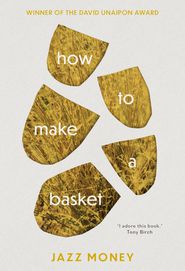It continues to be a phenomenal year for both local and international poetry. Here, we’ve collected some recent highlights, but we also recommend browsing the full collection of new poetry. The full collection includes many works released earlier in the year, including those from Tony Birch, Evelyn Araluen, Lucy Van, and Elfie Shiosaki.
All of these works are timely, lyrical, and share important voices. We hope they continue to get the recognition they deserve.
How Decent Folk Behave by Maxine Beneba Clarke
On a daylight street in Minneapolis Minnesota, a Black man is asphyxiated - by callous knee of an officer, by cruel might of state, and under crushing weight of colony. In Melbourne the body of another woman has been found - this time, after catching a late tram home.
These poems speak of the world that is, and sing for a world that may one day be. They explore themes including systemic violence, natural disasters, and the pandemic, among many others.
Human Looking by Andy Jackson
The poems in Human Looking speak with the voices of the disabled and the disfigured, in ways which are confronting, but also illuminating and tender. They speak of surgical interventions, and of the different kinds of disability which they seek to ‘correct’. They range widely, finding figures to identify with in mythology and history, art and photography, poetry and fiction.
The strength of the speaking voice is remarkable, as is its capacity for empathy and love. You can read our review of the full collection here.
How to Make a Basket by Jazz Money
How to Make a Basket, examines the tensions of living in the Australian colony today. By turns scathing, funny and lyrical, Money uses her poetry as an extension of protest against the violence of the colonial state, and as a celebration of Blak and queer love. Deeply personal and fiercely political, these poems attempt to remember, revision and re-voice history.
Writing in both Wiradjuri and English language, Money explores how places and bodies hold memories, and the ways our ancestors walk with us, speak through us and wait for us. You can read our review of the full collection here.
Vociferate by Emily Sun
Vociferate is a collection of poems inspired by Asian-American feminist writers. Like these writers, Emily resists interpellation into both Eurocentric and patriarchal tropes, as she explores the idea of national and transnational identities and the concept of belonging.
Underpinning the poems is a resistance to Orientalism, and an untangling of what it means to be an Asian-Australian moving through many different geopolitical and social contexts.
Take Care by Eunice Andrada
Take Care explores what it means to survive within systems not designed for tenderness. Bound in personal testimony, the poems situate the act of rape within the machinery of imperialism, where human and non-human bodies, lands, and waters are violated to uphold colonial powers.
Andrada explores the magnitude of rape culture in the everyday: from justice systems that dehumanise survivors, to exploitative care industries that deny Filipina workers their agency, to nationalist monuments that erase the sexual violence of war.
Memory Book edited by Cassandra Atherton & Jessica L. Wilkinson
Based on one-on-one interviews with forty-five participants, the fifteen poets involved in this project have shaped poems that provide unique and lasting remembrances of the experiences, memories and reflections of members of our older generations. Some poems focus on a significant moment, while others provide a wider life narrative.








